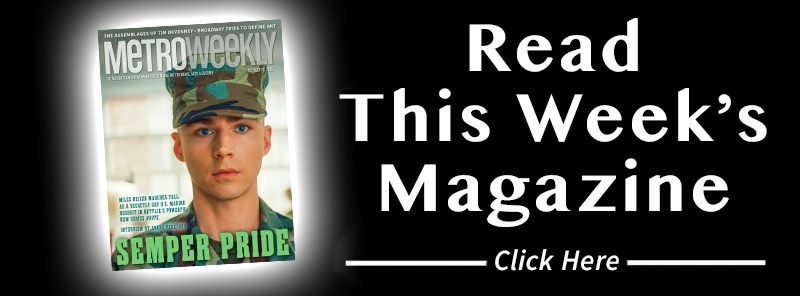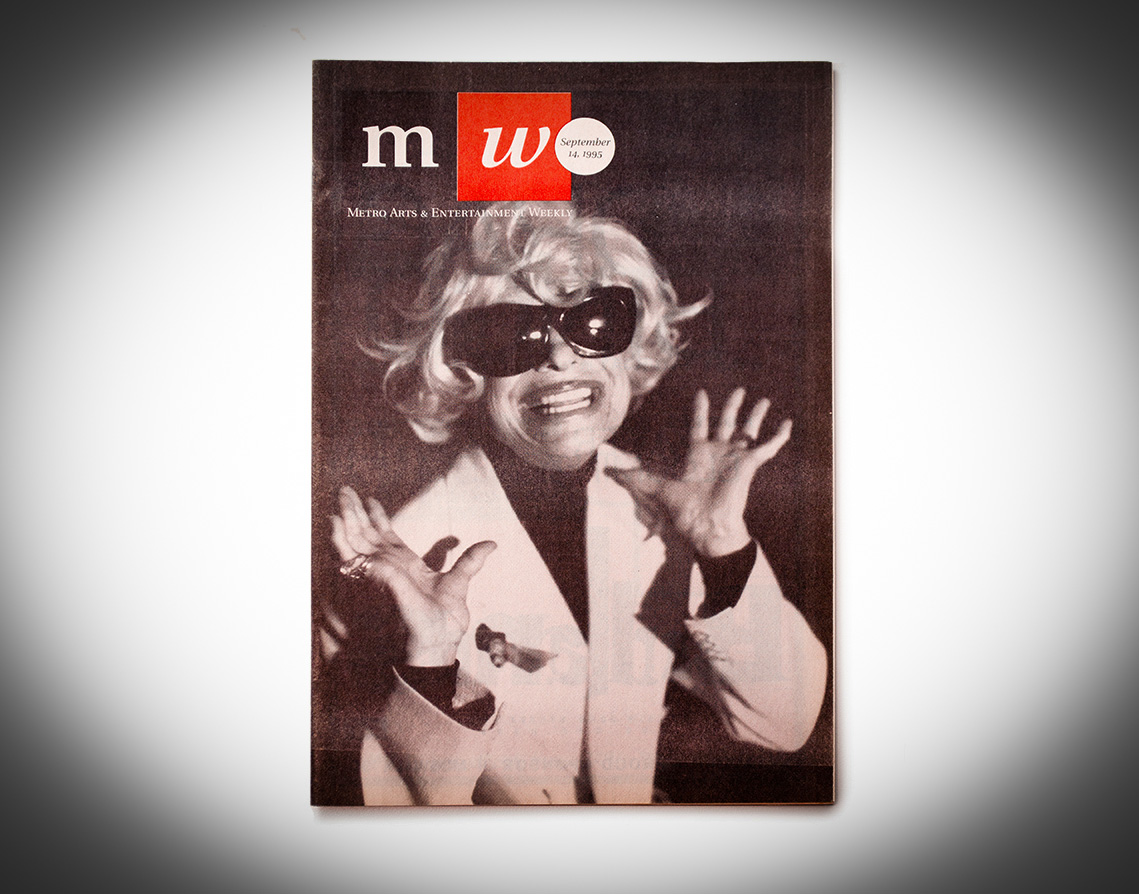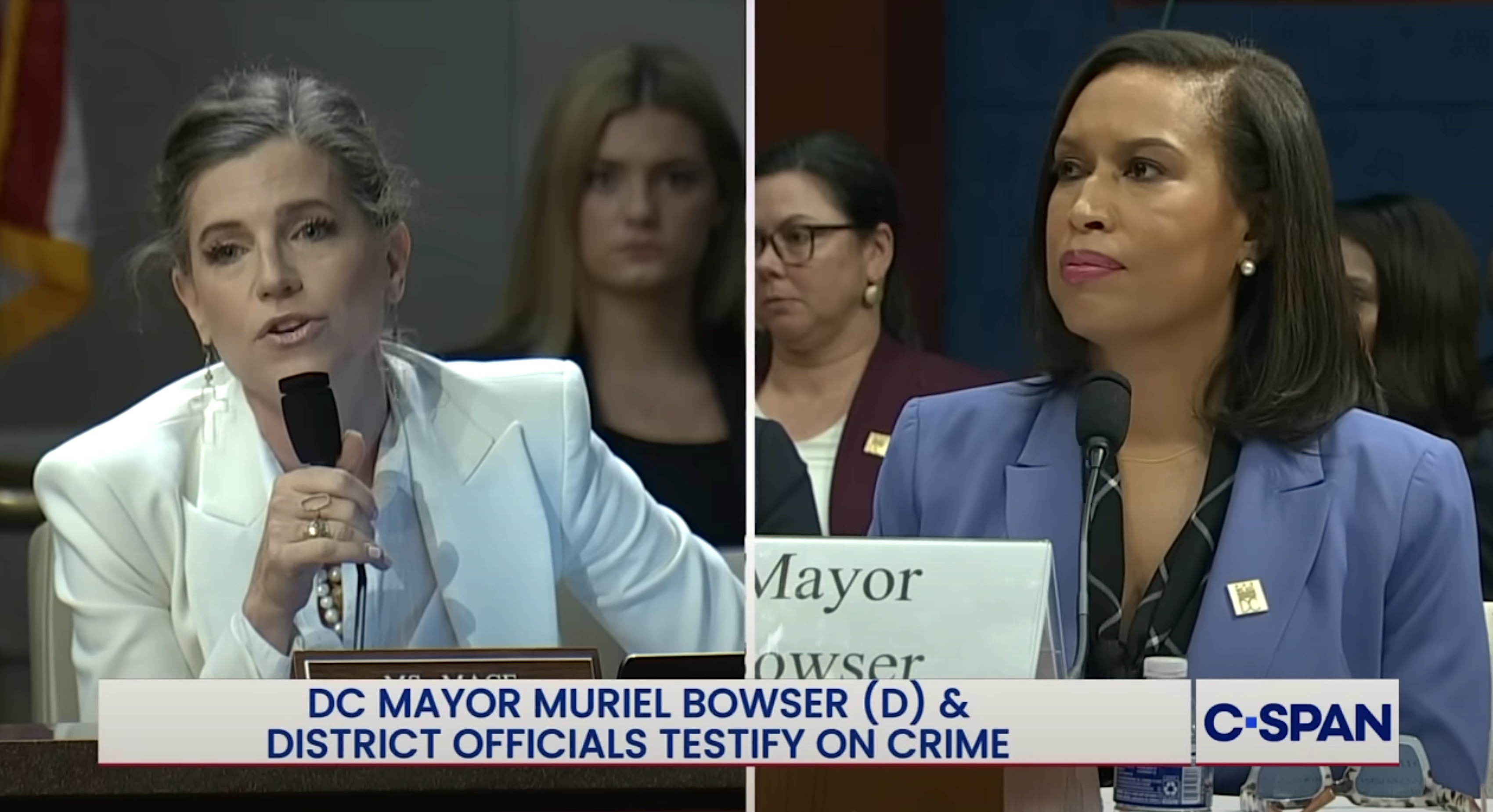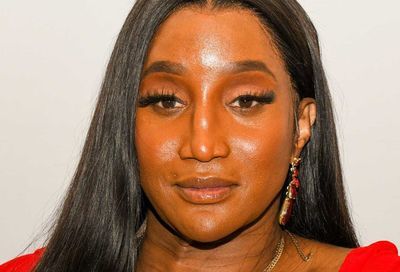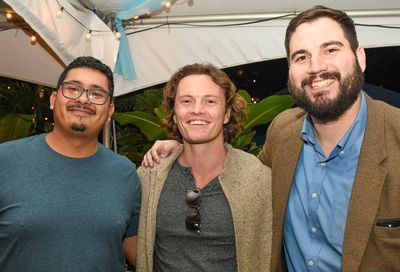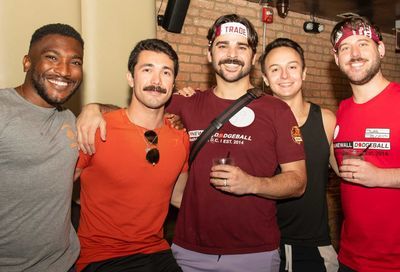Cybill Rights
'The L Word's' Cybill Shepherd on gays in the military, sexual attraction and coming out on TV
How can you not love Cybill Shepherd?
From her stunning on-screen debut as the sexually manipulative Jacy Farrow in 1971’s The Last Picture Show to her turns on television in the ’80s and ’90s on the groundbreaking Moonlighting and gloriously funny sitcom Cybill, to her brashly enjoyable turn as Martha Stewart in not one, but two television movies, the Golden Globe-winning actress has endeared herself to the American public. Her outspokenness, on the other hand, perhaps not so much. At least, not so much with political conservatives.
Not that Cybill Shepherd cares. Now in her mid-50s, she says what she thinks, and frequently puts action behind rhetoric.
 Shepherd |
But its her natural glamour — along with her comic timing and her ability to take a character and find the exact balance between larger-than-life and nuanced realism — that’s allowed her to cultivate a large gay male fan base, a base that, in the past year, has expanded to the lesbian community after Shepherd joined the cast of The L Word, Showtime’s popular series that celebrates — sexily and completely without apology — the joys (and heartbreaks) of being a woman who loves women. It’s a show that toasts female sexuality in big, bold, delicious strokes.
Shepherd and L Word co-stars Pam Grier and Marlee Matlin, along with series creator Ilene Chaiken, will be in Washington this Saturday, March 24, at the Servicemembers Legal Defense Network’s 15th Annual National Dinner, to accept the organization’s Randy Shilts Visibility Award on behalf of The L Word. (The show includes a lesbian character who is actively serving in the military.) For her part, Shepherd is looking forward to the event, reportedly signing on the instant the invitation arrived.
Shepherd, who is straight, refuses to allow herself to be called an ally to the GLBT cause. She bristles at labels, and has a better term for her involvement — but you’ll have to read on to find out what her viewpoint is.
For now, let’s just say Cybill’s right.
METRO WEEKLY: Let’s start with your season on The L Word. How has that been for you?
CYBILL SHEPHERD: It’s been one of the most satisfying experiences I’ve ever had as an actor. I actually met with them several years before it ever went on the air as a possibility of being on it. But they went a different way with Pam Grier playing Jennifer Beal’s sister.
MW: So they re-approached you for season four and it all worked out. Tell us a little bit about the character you played.
SHEPHERD: Her name is Phyllis Kroll and she is executive vice-chancellor of a major university. She’s very successful, has lived a totally full life, a heterosexual with two children now away at college, a wonderful, intelligent husband — and that empty nest syndrome that I have also experienced. It does leave a person open. It’s an emptiness, there’s a vacuum. It’s a way of suddenly looking at yourself. You become center stage again and that is an opportunity to say ”Well, what am I going to do with the rest of my life?” I can absolutely understand that a woman could look at her life and go, ”Wait a minute — I’ve gone through all the motions of being fulfilled but I don’t feel that way. And I believe I’m a lesbian.”
And that’s what Phyllis Kroll did. She hires Bette [Jennifer Beals] as a new director of the university art department, knowing she’s an openly gay woman living out loud. Bette becomes the catalyst for Phyllis to believe that she herself has missed something big in her life.
MW: The show, of course, pulls no punches and, for lack of a better word, can get quite steamy. What was your first love scene with another actress like for you?
SHEPHERD: Well, since I never played a sex scene with a woman in a movie, I was a little nervous. But I would have been very nervous playing any kind of sex scene, especially one so open and honest about women’s sexuality at every level.
[Series creator] Ilene Chaiken was extremely helpful with me talking about how they did the love scenes and they choreographed them. It’s closed — you’re totally private with the director and the other actor and you work out the moves, you get the parameters of where you’re going to be. And then, within those parameters, surprises come along. So it was pretty fun doing those love scenes.
MW: You started your film career in the ’70s when sex and sexuality was a strong, essential element in the cinematic landscape. Now movies have scaled back on it and television has picked up the gauntlet. TV is often more explicit than current movies — look at a show like Nip/Tuck. What’s your take on that?
SHEPHERD: You could name a lot of different shows that are showing heterosexual love that’s going further than [current] movies. But you don’t find another show that has women. The L Word is the only show that’s ever had women as full sexual beings, fulfilling themselves, going through the incredible emotional roller coaster of sex and love and growing and learning, and just seeing women of all ages and all backgrounds being sexual. There has never been a show with this much women’s sexuality. And that’s one of the reasons why I always wanted to do it. Because women’s sexuality through the ages has been condemned for the fall of man, for God’s sake. It was Eve’s sexuality — the tree of good and evil, that nasty snake giving her that apple, her wanting to know — that is blamed for the downfall [of humanity]. Then there are all these hideously anti-feminist tracts that say women are just poisonous and horrible and attack our sexuality.
I think it’s all about envy, really. How dare you have sex for pleasure? Women aren’t supposed to have pleasure. Remember the myth of the vaginal orgasm? Freud saying it’s not a mature orgasm if it’s just a clitoral orgasm? It turns out that the clitoris is far more involved and far more capable of all kinds of stuff. In the Victorian era, they put us up on the pedestal of moral superiority to men. Therefore, good women didn’t have pleasure. Only bad women had pleasure.
MW: What have you learned from playing Phyllis?
SHEPHERD: This is such a stupid way to say it, but it’s like we’ve been walking around in shoes that are ill-fitting, in shoes that aren’t us. And there comes that moment when, as a human being and a parent, you find out who you are and the shoes go on and you feel fabulous. I hate to put it down to something as simple as shoes, but suddenly you can move in your life, you can feel pleasure in your life. And when we step into our real selves, it’s a shock to our kids. They don’t want you to change.
Phyllis’s daughter, Molly, in The L Word is played by my own daughter, Clementine Ford. We have a scene together where Molly comes home from college in the middle of midterms to confront me. ”Mom, you can’t just up and decide one day you’re a lesbian! That’s absurd! What’s going to happen to Dad?” It’s a very dramatic scene. When your child is hating you for being true to yourself, judging you and saying, ”You can’t be like you really are,” that’s too horrible. You want them to understand because you want them to someday have the compassion and the honesty to really fulfill themselves. And if we can’t accept it in our parents, we can’t accept it in ourselves.
But I actually think the reverse is true. If we can’t accept it in our children, however they are, whatever their true nature is, we can’t accept it in ourselves. There’s always that pull between children and parents.
 Cybill Shepherd center with cast of ‘The L Word’ (Photo by Showtime Networks, Inc) |
MW: You have been quoted as saying that you had wondered about lesbianism at various times during your life. ”I wanted to be open to the possibility of having a woman as a lover. I am not actively pursuing it but it is not over yet,” is how the quote reads.
SHEPHERD: It’s not over til it’s over.
MW: Well, if the opportunity arose, do you honestly think you would be open to it?
SHEPHERD: Yes, I do. I don’t know how you describe me then. I think there are some things I could say that are not politically correct, but I have to say that it definitely would be a possibility, depending on the person.
MW: There are a lot of people who would just shut that side of themselves off, who would just try to avoid it. For you to be even frank about the possibility of it is extraordinary.
SHEPHERD: Well, you know, I marched on Washington in a major gay and lesbian march. The Human Rights Campaign sponsored me, and when I got there I said, ”I want to be in that first row and carry the banner” and they said, ”I’m sorry, unless you’re gay or lesbian, we’re not going to let you carry it. Because the people who’ve worked so hard, they deserve to carry it.” I took issue with that. I said, ”I don’t know why you’d have to be gay and lesbian to lead the march and carry the banner. It is an equal investment for anyone, regardless of what their orientation is or whatever you want to call it.” I said, ”Would Martin Luther King not have let me march with him because my skin was white? I don’t see any difference in the issue.” It’s about bigotry and hatred.
MW: Did you end up carrying the banner?
SHEPHERD: I did.
MW: Why has gay rights, in particular, been such an important topic to you?
SHEPHERD: I think of myself as being born as a political being, and there was a moment in my life [where it came together for me]. It was in 1968, when Martin Luther King was killed — assassinated — about three and a half miles from where I was in high school. I’ll never forget it. They announced it over the intercom that school was closing early and we were all to go home. I remember going out and looking towards downtown [Memphis], stricken, feeling responsible, feeling the heaviness of that hatred, of racial hatred, and feeling terrible that I hadn’t done anything to support the right way, meaning the fair way. And since I’d been born and raised in the segregated South, I remember ”colored-only” and ”white-only” bathrooms. And during the Mid-South Fair, the blacks went on a different day from the whites. The only black people I knew growing up were domesticated servants. Being around that hatred, I had internalized on some deep, emotional level an empathy — knowing it was wrong, but never talking, hearing racist comments all the time in my home and everywhere, but not standing up. Then when I got into the ninth grade, I began to be more enlightened. I had close friends and we all agreed on it. It was wrong, it was a horrible racial inequality in this country and it needed to be addressed.
So, to answer your question, as you open yourself up to civil rights, it really doesn’t matter what your excuse is for handing human beings something that says ”You’re less than me, you don’t get the equal rights should you choose to have a partnership with someone. You don’t get the economic benefits or the tax benefits of marriage.” Once you start going towards what I call the ”right thinking,” you can’t draw the line. You have to go all the way. You can’t discriminate.
MW: All or nothing.
SHEPHERD: It really is all or nothing. And that brings me to why I’m going to be in Washington, to support this event.
MW: The SLDN dinner.
SHEPHERD: Yes. It’s a cause that is close to my heart. I have this enormous respect for people with the courage to go where other people haven’t gone and set the example of defying ”Don’t Ask, Don’t Tell” and other types of discrimination. It’s so archaic that discrimination is still in the military through the ”Don’t Ask, Don’t Tell” policy. I think it’s the only place where you are allowed to discriminate against someone. You can’t keep people out of the military because of the color of their skin or their religion, but you can based on sexual orientation. It’s hard to believe that in this day and age we still have this kind of discrimination and we’re depriving ourselves at a time when we desperately need these great, good people who have the expertise and are willing to serve their country. And the cost to the government of replacing these people! I read somewhere it’s millions and millions and millions of dollars to replace excellent people doing their job with courage. It’s an absurdity. Let’s shoot ourselves in the foot a few more times.
MW: What do you think the solution is?
SHEPHERD: Well, obviously, repeal ”Don’t Ask, Don’t Tell.” I feel that it’s very important as well to give gays and lesbians the right to marry and have full rights under the law. They all kind of go together, don’t they? We need to acknowledge and root out this bias, this poison in our society. Somebody said to me the other day that with knowledge, you don’t fear. When you’re less ignorant, you fear less. As much as we like to think there’s been a lot of progress — and there has been, obviously — they’re still trying to put it in the Constitution that gays and lesbians can’t marry.
MW: On the subject of marriage, do you personally care whether it’s a religious ceremony or a civil ceremony?
SHEPHERD: I think that civil is a no-brainer. As far as religion or church or that sort of thing, it goes per the religion. We have religions that are very backward-looking and are very discriminatory — and I certainly wouldn’t want to be a member of that. But there has also been great progress by the Episcopalian Church. But then you have all these other sects of the Episcopalian Church saying, ”We’re going to leave the church because of this.” It’s fear, again. It’s hard to use the excuse of ignorance in this day and age — there’s a lot less ignorance about it, so it’s a lot less acceptable to have this kind of hate expressed the way these people do. As we know, many crimes have been done in the name of religion.
MW: Are you religious?
SHEPHERD: Well, we’d have to define that term. I’m not a regular member of a church, but I guess you could describe me as a goddess-worshipping Christian Pagan Buddhist [laughs].
MW: The word that pops into my mind from your description is Wiccan.
SHEPHERD: Really? I was thinking of Lilith, the first wife of Adam who refused to lie under him. They didn’t teach my children that at Hebrew School.
MW: So many of the world’s problems stem from religious extremism.
SHEPHERD: Using dogma to support their own evil — I know what you mean. If you could just abolish all the horrible negative things that religion is causing as we speak, it seems it would make so much of the evil in the world go away. But I don’t think ultimately we can blame God or Goddess or whatever you want to call the Higher Power for human misdeeds. That’s just an excuse.
I recall an expression that really struck home for me and had a lot to do with what I consider my enlightening as a person. It was the expression, ”If God is a man, then man is a God.” It wasn’t until I began exploring God as a woman or Goddess that I began to really come into my own fullness as a human being. The empowerment that comes from believing that God can be a woman just changes your attitude so much. You have to take the next step that’s logical. If you can think of your divinity as, say, a gay man or a gay black woman, or every other form and shape and size and orientation that we human beings come in, then we grow.
We want to grow. And the great religions and the great traditions have so much to give us, that we need to grow as loving, accepting human beings so that we can finally be free and I think that that’s what brings me back to SLDN. I think it’s so important to provide this legal support for our gay and lesbian members in the military. The freedom to serve because we desperately need it. All countries need it. We’re behind in this compared to other countries. We need to say ”yes” more.
MW: It would help if more high-profile celebrities such as yourself put themselves front and center for the cause. There are so many out there who are gay but still in the closet. Why do you think it’s so difficult for actors or actresses to feel comfortable enough to be out?
SHEPHERD: Well, even I lost a very lucrative contract to speak to a women’s organization in Texas the day after it was announced that I was doing The L Word. So people are discriminated against and are losing jobs. So, of course, there’s fear. I had a lot of fear. I don’t know what I was afraid of. I had a lot of fear when the episodes first came on, a huge amount of fear that I’d never really felt before. I think that everybody has his own prejudice inside, and often we have to start to enlighten ourselves about our own prejudices. And we’re fed these lies and the hatred in so many ways that you have to confront your own prejudices. I don’t think that any person alive is free from prejudice. We’ll never be free from prejudice. It’s part of being human. What was my fear? Was my fear that people would think I was a lesbian? And then would they think less of me? Was my fear that I am a lesbian? Was my fear that I would get cooties? I don’t know. I just had a lot of fear. And also playing into that was the fact was that being sexual in a part for a woman my age in this business is very rare. We’re usually stuck with playing the crazy mothers. And we’re lucky to get those parts.
MW: Well, you did play Martha Stewart. There’s a crazy mother for you.
SHEPHERD: [Laughs.]
MW: I think we should be proud to have you as an ally.
SHEPHERD: Oh, well, an ally always makes me feel like there’s an ”Us” and ”Them.” And I don’t really buy into the ”Us” and ”Them.”
MW: Well, then how about, ”On our side?”
SHEPHERD: How about, ”All the same?”
SLDN’s 15th Annual National Dinner, ”Honor, Courage, Victory,” will be held this Saturday, March 24, at the Naitonal Building Museum, 401 F St. NW. For tickets, visit www.sldn.org. On Monday, March 26, SLDN will hold a Lobby Day on Capitol Hill. For more details on how to participate, or to register, visit http://ga1.org/sldn/events/lobbyday07/details.tcl on the web.
Advertisement
|
Support Metro Weekly’s Journalism
These are challenging times for news organizations. And yet it’s crucial we stay active and provide vital resources and information to both our local readers and the world. So won’t you please take a moment and consider supporting Metro Weekly with a membership? For as little as $5 a month, you can help ensure Metro Weekly magazine and MetroWeekly.com remain free, viable resources as we provide the best, most diverse, culturally-resonant LGBTQ coverage in both the D.C. region and around the world. Memberships come with exclusive perks and discounts, your own personal digital delivery of each week’s magazine (and an archive), access to our Member's Lounge when it launches this fall, and exclusive members-only items like Metro Weekly Membership Mugs and Tote Bags! Check out all our membership levels here and please join us today!










